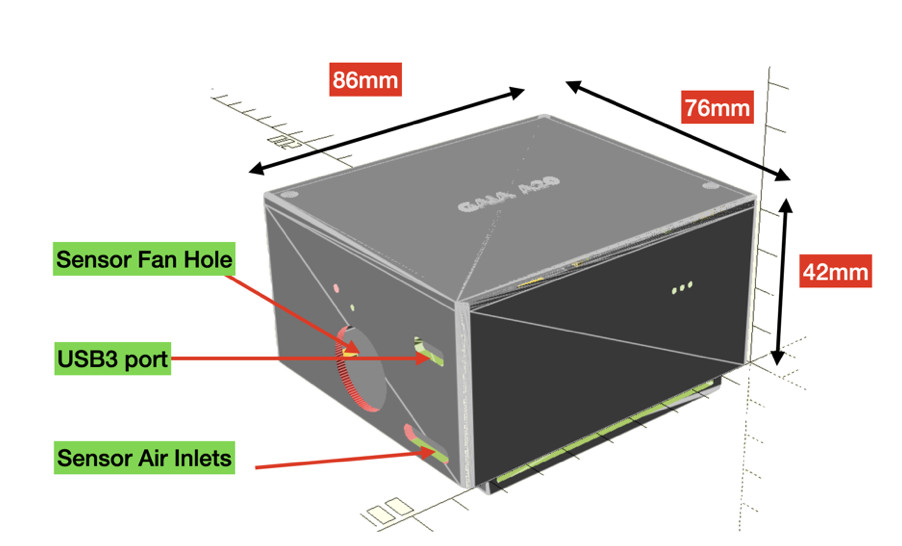Share: aqicn.org/gaia/a20/

The GAIA A20 sensor is a custom-designed sensor box with the following requirements:
- Two redundant PM2.5 sensors (PMS 5003)
- GPS/Beidu GNSS + Integrated GPS Antenna
- Temperature and Humidity sensor (DHT11)
- Internal data storage, allowing up to 4 weeks continuous monitoring (with a duty cycle of 30 samples every 5 minutes).
- USB connection to retrieve the data storage
- No Wifi required (for autonomous monitoring)
- Battery powered - expect to run for at least 3 days without solar harvesting.
- Battery charing via Solar panel or USB connector, allowing forever off-grid operation, provided there are a few sunny day every week.
- Lightweight (can be hand-carried, for example attached to a handbag)
Specification Sheet
- Specification & User Manual: gaia-a20-spec-v1.6.pdf

GAIA A20 package content:

Included in the package are:
- 1 GAIA A20 station
- USB Power supply
- USB Data cabled (0.5 meters)
- 2 mounting hooks
- Solar Panel (6V/1A, eg 6W)
- Solar Panel mounting mechanical parts
- 5 meter waterproof power cable
- General mounting tools (straps and screws)
- Screw driver (for opening the A20 station and inserting the battery)
Optionally included in the package are:
- 18650 3400mA/h battery (allowing 5/7 days operation without solar harvesting)
- 18650 battery charger (with USB connector)
Solar Panel Mounting
The solar panel comes with a 5 meters (16 feet) water proof power cable (can be extended to 10 meters).

Note that it is recommended to keep the GAIA station away from direct rain
Pricing
